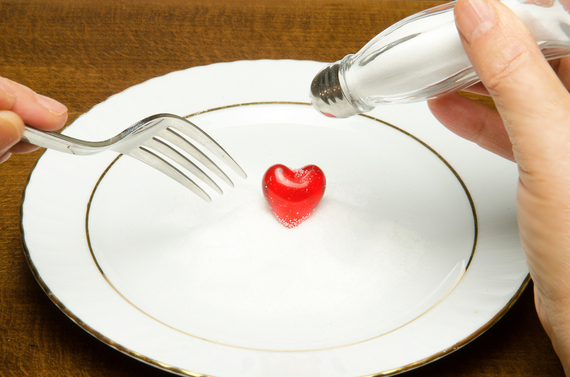
Increased intake of salt can cause kidney, heart and brain problem, but could you have ever guessed, that too much salt can be harmful to your liver? It doesn't directly affect the liver, but can cause some of the problems which will, later on, harm your liver. These problems are:
That's why it's important to know when you eat too much salt. We will talk about how you can notice symptoms of high blood pressure, and symptoms of fluid retention. And also how exactly can salt cause those problems within our bodies, and what is the optimal intake of salt during the day.
How Salt Causes Fluid Retention and What Are Its Symptoms:
1. Causes of Fluid Retention
Fluid Retention or simply edema can also be caused by a high increase of salt in our body. The reasons this problem can occur is in most cases a bad diet involving a big intake of salt, which will in return make your body retention its fluid, and make you drink more water daily. Just like with every other food, make sure to manage how much salt you eat during the day. Check the packages for information on how much salt they have, and keep in mind that an average person shouldn't eat more than 1500 milligrams of salt per day.
2. Symptoms of Fluid Retention
Symptoms of fluid retention caused by an increase of salt in our body can be swollen feet, hands and elbows. You may also notice that because of your swollen body, your clothes will feel tighter than they should be. And in time, you will notice an increase in your weight. If this starts happening, don't wait for it to get better. Make sure to visit the doctor, since edema can be a cause of many bigger problems, and also tell him about your daily salt intake and he will describe you the right therapy. If the problem occurred because of too much salt in your body, he will notify you about it, and tell you that you should take lower your salt intake.
How Salt Causes High Blood Pressure and What Are Its Symptoms:
1. Causes of High Blood Pressure
If you have a bigger daily intake of salt than usual, that extra salt in your body will make your body hold water. That extra water in your body will increase your blood pressure which can then affect your liver. Not only can high blood pressure cause liver problems over time, but also heart problems, kidney problems and brain problems. Once again if you want to keep your liver and other organs healthy, make sure to manage how much salt you eat daily.
2. Symptoms of High Blood Pressure
There are plenty symptoms of high blood pressure, but you will only notice them if your blood pressure is abnormally high. If, like said previously, your blood pressure is abnormally increased; you will notice that you're experiencing headaches more often. Also, in time, you will often experience nosebleeds, and that will be much more than before. So if you notice that this starts happening to you, make sure to inform your doctor about it, and also you should decrease you salt intake. Try to add high blood pressure diet in your daily routine so that it will help you to increase your intake of correct diet.
Reduce your daily salt dose:
As you can see, there are two main problems that can be caused by salt, which can indirectly do damage to your liver. Like previously mentioned, the average intake of salt to our body is 1500 mg up till 2300 mg per day. That's why it's important always to check the package of the food you're buying to see how much salt it contains. Around 140 mg of salt per serving is optimal intake, so also, make sure to know how much salt you're putting in the food you're making. For those who already have liver problems, their best bet is to try a low-sodium diet.
Conclusion:
Carefully manage your daily salt intake, and if you at any time notice symptoms of high blood pressure and fluid retention, don't take your time and wait for things to get better. Go to the doctor and inform him about your problems, and make sure to tell him about your daily salt intake. If he tells you that those problems are caused by too much salt, make sure to change your diet, and make a new one where the salt intake is lower, so your liver can be healthy as it should be. Reduce the amount of salt, and make your liver and body healthier than before.
